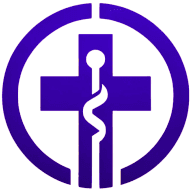7 How Pharmacists' Roles Are Evolving in Modern Healthcare
In an age where healthcare is rapidly evolving, the role of pharmacists is undergoing a fascinating transformation. Insights from a Founder & CEO and a CEO reveal new dimensions of responsibilities for these healthcare professionals. The article begins by exploring how pharmacists are becoming healthcare coaches and concludes with their role in managing chronic diseases. Discover seven key insights that showcase the expanding scope and impact of pharmacists in modern healthcare.
- Pharmacists Become Healthcare Coaches
- Pharmacists Fill Primary Care Gaps
- Pharmacists Optimize Medication Therapy
- Pharmacists Enhance Patient Care Accessibility
- Pharmacists Ensure Medication Safety
- Pharmacists Improve Patient Education
- Pharmacists Manage Chronic Diseases
Pharmacists Become Healthcare Coaches
I've noticed pharmacists becoming more like healthcare coaches these days, going way beyond just filling prescriptions. At my local pharmacy, the pharmacist actually caught a dangerous drug interaction my doctors missed and then spent time explaining everything to me, which really showed me how their role is expanding into direct patient care.

Pharmacists Fill Primary Care Gaps
The role of pharmacists is evolving as healthcare trends shift to address the critical supply and demand challenges in medicine. With growing gaps in primary care, we must realign the workforce to ensure patients receive comprehensive care. Pharmacists are uniquely positioned to fill these gaps by moving beyond the traditional role of dispensing medications and integrating more deeply into patient care.
This integration is driven by necessity-bridging the disparity between healthcare supply and demand requires pharmacists to collaborate closely with physicians and other providers. In the future, I foresee pharmacies and clinics becoming unified, enabling seamless handoffs and creating a more holistic care model. This approach addresses the asymmetry in primary care knowledge and improves patient outcomes through better-coordinated and more accessible care. By embracing these expanded responsibilities, pharmacists can be a cornerstone of the solution to the growing demands on the healthcare system.
Pharmacists Optimize Medication Therapy
In modern healthcare, pharmacists play a crucial role by optimizing medication therapy to achieve better patient outcomes. They carefully review prescriptions and monitor patient reactions to ensure therapies are effective. By collaborating with doctors and other healthcare providers, they help tailor treatments that best meet individual patient needs.
This role requires them to stay updated with the latest medical research and advancements. Their expertise contributes significantly to patient health, making it essential to recognize and support their efforts.
Pharmacists Enhance Patient Care Accessibility
Pharmacists have become more accessible as healthcare providers, effectively bridging gaps in patient care. They serve as the first point of contact for many seeking medical advice and assistance. With the ability to counsel patients on minor ailments and health concerns, they enhance the overall healthcare experience.
This accessibility ensures that individuals receive timely information and care, which might otherwise be delayed. Recognizing their increased scope of practice encourages individuals to utilize their services more frequently, benefiting public health.
Pharmacists Ensure Medication Safety
Ensuring medication safety and efficacy has become a central role for pharmacists in today's healthcare landscape. They are tasked with the critical responsibility of verifying prescriptions to prevent drug interactions and potential side effects. By providing clear instructions and guidance on proper medication use, they safeguard patient well-being.
Their vigilance in monitoring and managing medications helps reduce hospital readmissions and improve recovery rates. Acknowledging their role in medication safety highlights the need for patients to seek their guidance consistently.
Pharmacists Improve Patient Education
Pharmacists are recognized as medication experts who significantly improve patient education. They take the time to explain how medications work, how to take them correctly, and what side effects to watch for. This in-depth knowledge empowers patients to manage their health conditions more effectively.
By making complex medical information accessible, pharmacists enable better patient compliance and outcomes. Valuing their educational efforts can lead to more informed and healthier communities.
Pharmacists Manage Chronic Diseases
In modern healthcare, pharmacists actively manage chronic diseases by collaborating with other healthcare providers. They play an integral role in monitoring disease progression and adjusting medications accordingly. Through regular patient follow-ups and personalized care plans, they help achieve better health management.
This collaborative approach ensures that patients receive comprehensive care that addresses all aspects of their conditions. Encouraging patients to engage with pharmacists for chronic disease management can lead to improved long-term health outcomes.


